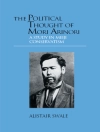In ‘Ann Veronica, ‘ H. G. Wells delves into the complexities of gender politics and social emancipation at the turn of the 20th century. This novel follows the journey of its eponymous heroine, Ann Veronica Stanley, a spirited young woman who challenges the constraints of Victorian society. Written with Wells’ characteristic blend of realism and philosophical inquiry, the narrative intertwines themes of feminism, independence, and personal rebellion against societal norms. The book’s brisk pacing and incisive dialogues reveal the tensions between traditional values and emerging modern ideals, reflecting the shifting landscape of women’s rights during its time. H. G. Wells, often heralded as the father of science fiction, was profoundly influenced by the social issues of his era, including suffrage and class disparity. His own background of humble beginnings and progressive thought imbued his characters with a sense of urgency and relatability. ‘Ann Veronica’ is not simply a fictional account; it embodies Wells’ critique of social structures and his advocacy for the individual’s quest for identity amidst the constraints of society, making the narrative deeply personal as well as universally relevant. This compelling novel is essential reading for those interested in early feminist literature, sociopolitical critique, or Wells’ broader oeuvre. By presenting a vivid portrayal of a woman’s struggle for autonomy, ‘Ann Veronica’ challenges readers to reflect on the progress made since its publication while recognizing the persisting issues of gender equality. It invites contemporary audiences to engage with its themes and consider the ongoing relevance of Wells’ insights.
Yazar hakkında
H. G. Wells, born Herbert George Wells on September 21, 1866, in Bromley, Kent, England, was a prolific writer whose diverse works spanned science fiction, social commentary, history, and satire. Educated at the Normal School of Science in London, Wells was initially trained in biology under Thomas Henry Huxley, an influence that would later permeate his science fiction works. Despite his scientific background, Wells gravitated towards literature, utilizing his books to explore the social and political issues of his time. His literary style often incorporated a keen foresight, with narratives rich in speculative imagination and prescient themes, particularly those of futuristic science and its potential impacts on society.
Among his vast oeuvre, ‘Ann Veronica’ (1909) stands out as a pivotal novel of Edwardian literature. This novel marked a departure from Wells’ earlier science fiction works, delving into feminist themes and the struggle for women’s rights through the character of Ann Veronica Stanley, a young woman who rebels against the constraints of her middle-class upbringing. The book’s exploration of personal freedom and social conventions reflects Well’s ongoing engagement with contemporary issues. Wells’ commitment to exploring ideological discourses through his narratives established him as a vanguard of both sociopolitical critique and visionary thinking. His literary contributions have made him a mainstay in the annals of English literature, earning him the moniker ‘The Father of Science Fiction’ alongside contemporaries such as Jules Verne. Wells passed away on August 13, 1946, leaving behind a legacy as a writer who deftly traversed the realms of reality and the speculative to provoke thought and discussion.












